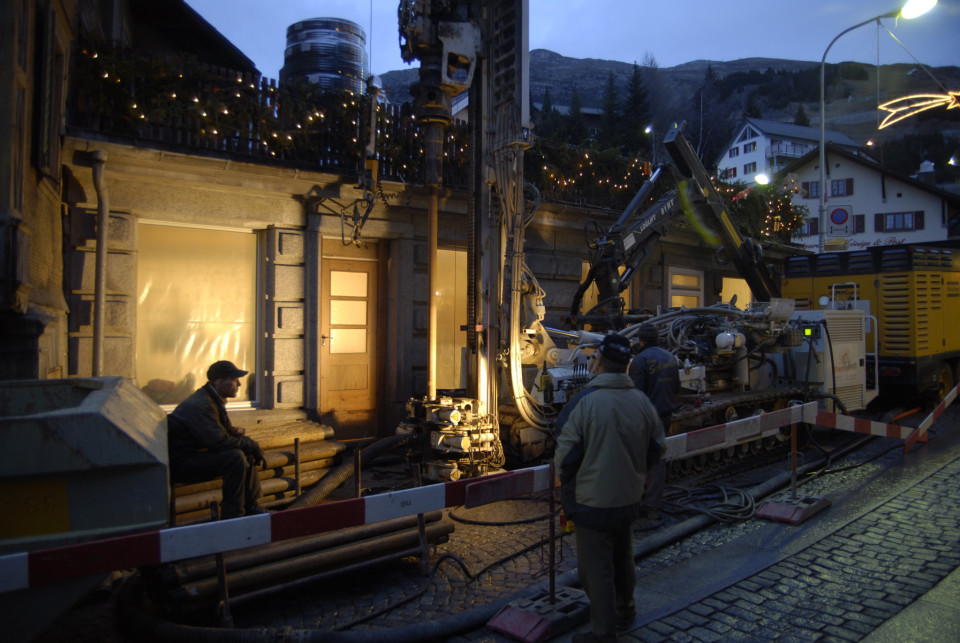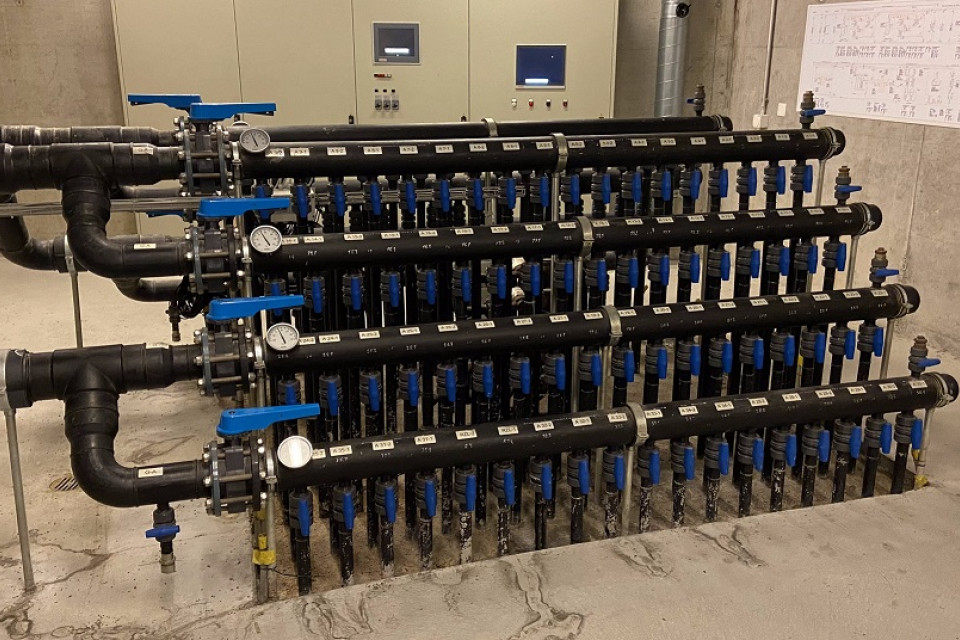Looking for a present? The gift that's also a good deed!
Switzerland has focused on obtaining energy from alternative sources for many years, and the mission is clear: emissions need to be reduced and energy must be obtained by sustainable means. The hotel industry is leading these efforts by example as hoteliers throughout the country demonstrate their innovative spirit.
Cutting CO2 emissions with heat from underground
The Cervo Mountain Resort at Zermatt meets almost 95% of its energy demand with geothermal heat. Recovery of thermal energy and a comprehensive water management system conserve resources and provide the basis for a sustainable energy concept. Thanks to its new heat pump, the hotel has cut its oil consumption by 90% as compared to previous years.
With its magnificent appearance, the Dolder Grand is truly a classic landmark on the Zurich hotel scene. But the hotel's real treasures lie buried deep underground – or to be more precise, at a depth of 152 meters. This is where the centrepiece of the hotel's geothermal system is located, comprising 70 geothermal probes that supply heat for the entire property. By installing the probes during conversion work on the hotel between 2004 and 2008, the Dolder Grand achieved a massive reduction in its greenhouse gas emissions – but at the same time, the installation increased the usable area available to the hotel. Pascal Louvés, the Dolder Grand's Engineering Manager, sums up the project in very positive terms. "Since 2005, we've been collaborating with the Energy Agency of the Swiss Private Sector (EnAW) to reduce the Dolder Grand's CO2 emissions and energy consumption with a series of individual measures and projects. The result is that we're able to save over 1,500 megawatt hours (MWh) of energy each year. That's equivalent to the average annual consumption of around 70 single-family houses. And we've also managed to cut CO2 emissions by more than 60%." The Dolder Grand has been awarded the EnAW's Efficiency Label in recognition of its commitment.
«Sustainability has top priority in our book. And that also applies to building work.»
The River House Boutique Hotel in Andermatt also produces heat from a geothermal energy system. When the new energy concept was being planned in 2005, the hotel worked in particularly close collaboration with the Cantonal authorities: this was because some of the drilling was to take place on Cantonal land and public roads. Sustainable benefits for the region and its residents were the key factor in gaining approval to carry out this drilling on public land. The result: the River House is still able to make use of its geothermal energy system today – a key factor in the consistent implementation of its strict sustainability concept. Sarah Keller and Kevin Obschlager, the hotel's managers and owners, also view this aspect as exceptionally important. "Sustainability is our top priority whenever we make decisions – no matter whether they involve building work, food purchasing, or placing contracts with external service providers. And we sacrifice additional income in order to do that." This mindset is also reflected in the hotel's energy concept, which benefits from a regular inflow of refurbishment investments to keep up with the latest state-of-the-art. To take one example: the hotel deploys smart home technology to optimise its energy consumption. "And going forward, a new solar roof will generate emission-free electricity in the summer months," Sarah Keller points out with conviction.

Utilising the power of water
Schloss Wartegg on the Rorschacherberg operates its own small run-of-the-river power plant to produce its own energy. The amount of electricity it can produce is heavily dependent on rainfall. Furthermore, this "hotel in a castle" uses 100% eco-electricity (certified with the Naturemade Star label) as part of its efforts to achieve the highest standards of energy efficiency.
The Grandhotel Giessbach on Lake Brienz also opts for hydropower. Back in 1949, the Giessbach power plant was built at the foot of the Giessbach Falls to supply power to the Hotel Giessbach and the funicular that belongs to it. Following restoration work on the installation and additional building work, the hotel has obtained 100% of its electricity from the adjacent stream since the start of 2022.
The Alex Lake Zurich, located in Thalwil directly on the shore of Lake Zurich, utilises lakewater for cooling and heating – whereas the Hotel Belvedere in Grindelwald makes use of groundwater to recover heat. The Hotel Fafleralp in the idyllic Lötschental Valley obtains 100% of its electricity from the hydropower plant located in the immediate vicinity of the hotel.
